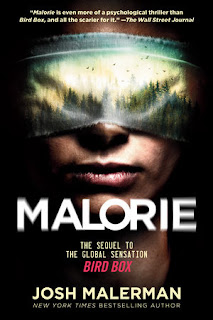Oldies But Goodies
{Put This One on Your TBR List}
Book Review: I Am
Legend by Richard Matheson
by Karen S. Wiesner

Be aware that there may be spoilers in this review.
I Am Legend by Richard Matheson was published in 1954, a post-apocalyptic horror novel that set the stage for zombie and vampire literature that's flooded in ever since. As with many of these types of stories, the concept of a worldwide apocalypse spreads through disease. In this tale, the vampires that populated what was left of the world more closely resembled zombies, despite what the protagonist called them.
Robert Neville is the last man on Earth. A terrible plague has either killed mankind or transformed them into vampires...and all they want is Robert's blood. Robert's wife, Virginia, and daughter, Kathy, died from the plague. Kathy's body had been thrown in a fire pit. He hadn't allowed that to be done to his wife--he'd tried to bury her, but she came back, and then he had to kill her as he had the others.
For the past eight months, since the plague infected the population--a plague he himself is immune to--Robert has been surviving the only way he can while systematically trying to get rid as many of the vampires as he can during daylight. By day, he also tries to repair the damage done to his property during the night attacks. He lives by his watch because, as soon as the sun sets, he must be behind locked doors and boarded windows. The vampires are drawn to him every single night, howling, snarling and trying to break through the barriers he's erected to keep them out. They want his blood; they want to make him as they are. He understands little about them beyond that they stay inside by day, avoid garlic, can be killed by a stake through the heart, fear crosses, and dread mirrors. The creatures are white-fanged and powerful, frequently attacking each other because there's no union among them--their need for blood is their only motivation.
Robert isn't sure how much longer he can do what he's been doing--little by little trying to reduce their unholy numbers. He has no time to slow down and think, because his struggle is never-ending, but eventually he's driven to test the blood of a vampire and finally isolates a germ--the cause of vampirism. Sunlight kills the germ. It's too late to cure those who have already been infected, but, if there are others like him, how can he cure them?
Robert finds a dog that seems as whole and intact as he is; later, a young woman, Ruth, who's survived all of this as well. Having believed that his investigation into how to destroy the vampires is worthless and that he has no reason for staying alive, the possibility of a life other than his own, a companion, renews his determination to keep fighting. He's clung to the idea all this time that a human being not infected will come, that he isn't the last person on Earth. But Ruth has a secret that could change everything, all he's known since the plague started, as well as his own views about survival.
Richard Matheson is a master at creating stories like these, where the descriptions of the chilling settings, scenarios, and characters are so robust and realistic, you become convinced you're huddled in a fortress of a house smothered by shrieking, starving and subsequently ravenous creatures who not only want you dead, but want to eat you for dinner--though, in this case, it'll probably be a last meal. Every ounce of torment and torture this lone character feels day after day, endless night after night, is detailed as if you're sitting right next to the character, experiencing the suffocating burden laid on these weary shoulders. The flicker of hope at the potential of no longer being alone is utterly heart-rending. Even if Robert is a man who's grown rusty and bitter, forced into isolation, the reader can't help but be shattered by every blow he takes as if we're also receiving it.
Simply put, no one can really top this masterpiece that set countless standards in supernatural, creature horror, end-of-the-world fiction. Fittingly, the Horror Writers Association bestowed on I Am Legend the Vampire Novel of the Century Award in 2012.
As for the author's inspiration in writing it, Matheson credits Mary Shelley's novel The Last Man, where an immune person survived a plague that destroyed the world. Three films loosely based on I Am Legend were made (some under different titles), but the one I like best is the one that actually took the same name as the book and starred Will Smith (released in 2007), though of course none of the adaptations really follow the book version closely, which is kind of a shame.
Readers would be remiss not to give this influential story a first or subsequent read or a watch, if you'd prefer a more visual medium that can appropriately be enjoyed in the dark.
Next week, I'll review another Oldie But Goodie you might find worth another read, too.
Karen Wiesner is an
award-winning, multi-genre author of over 150 titles and 16 series.
Visit her website here: https://karenwiesner.weebly.com/
and https://karenwiesner.weebly.com/karens-quill-blog
Find out more about her books
and see her art here: http://www.facebook.com/KarenWiesnerAuthor
Visit her publisher here: https://www.writers-exchange.com/Karen-Wiesner/






































